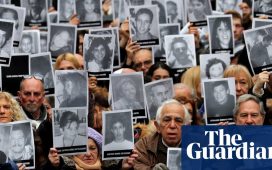Even aside from his swipe at his fellow justices who haven’t signed up for his crusade, to call this kind of talk simplistic is far too generous. Justices and legal scholars alike have struggled for decades to identify the right balance for religion within a pluralistic society, an effort Justice Alito reduced to a cartoonish either/or. Even were I willing to cut him some slack for loose talk among friends (I don’t know whether he was aware that Notre Dame would post the video online), I would still find the narrowness of his vision deeply disturbing. He offered no acknowledgment, none, of the harm that can occur when religion is elevated above all other claims to recognition and respect.
For example, in the aftermath of his opinion in the 2014 Hobby Lobby case, tens of thousands of women have never received the contraception coverage to which the Affordable Care Act entitled them because they work for employers with objections to particular forms of birth control. His opinion in 2020 extending the so-called ministerial exception to cover nonministerial employees of religious organizations stripped those employees of the protection of federal laws that prohibit job discrimination. And, of course, the very opinion he bragged about to his audience in Rome, an opinion that as I have recently explained was grounded in religious doctrine rather than constitutional law, took no account of its devastating impact on women.
In speeches as well as opinions, Justice Alito has warned of growing hostility to religion, and he did the same in Rome, denouncing what he called hostility to “at least the traditional religious beliefs that are contrary to the new moral code that is ascendant in some sectors.” This was the Alito of his opinion dissenting from the Obergefell v. Hodges decision, which recognized a constitutional right to same-sex marriage. He predicted then that “those who cling to old beliefs will be able to whisper their thoughts in the recesses of their homes, but if they repeat those views in public, they will risk being labeled as bigots and treated as such.”
In Rome, more clearly than in the past, Justice Alito provided his own definition of religious liberty, an expansive definition that mirrored the court’s holding in this summer’s praying coach case. In that case, the school district in Bremerton, Wash., had offered the coach an alternate place where he could pray after the games. But the coach insisted that he felt religiously compelled to pray in public in full view of the spectator stands. The court, which in the past was notably stingy when it came to the free speech rights of public employees, endorsed this expression of militant Christianity.
In his Rome speech, Justice Alito did not refer explicitly to that case, but his definition of religious liberty underscored and explained the court’s remarkable departure. Religious liberty must mean more than simply “freedom of worship,” he said. “Freedom of worship means freedom to do these things that you like to do in the privacy of your home, or in your church or your synagogue or your mosque or your temple. But when you step outside into the public square, in the light of day, you had better behave yourself like a good secular citizen.” And he added, “That’s the problem that we face.”





